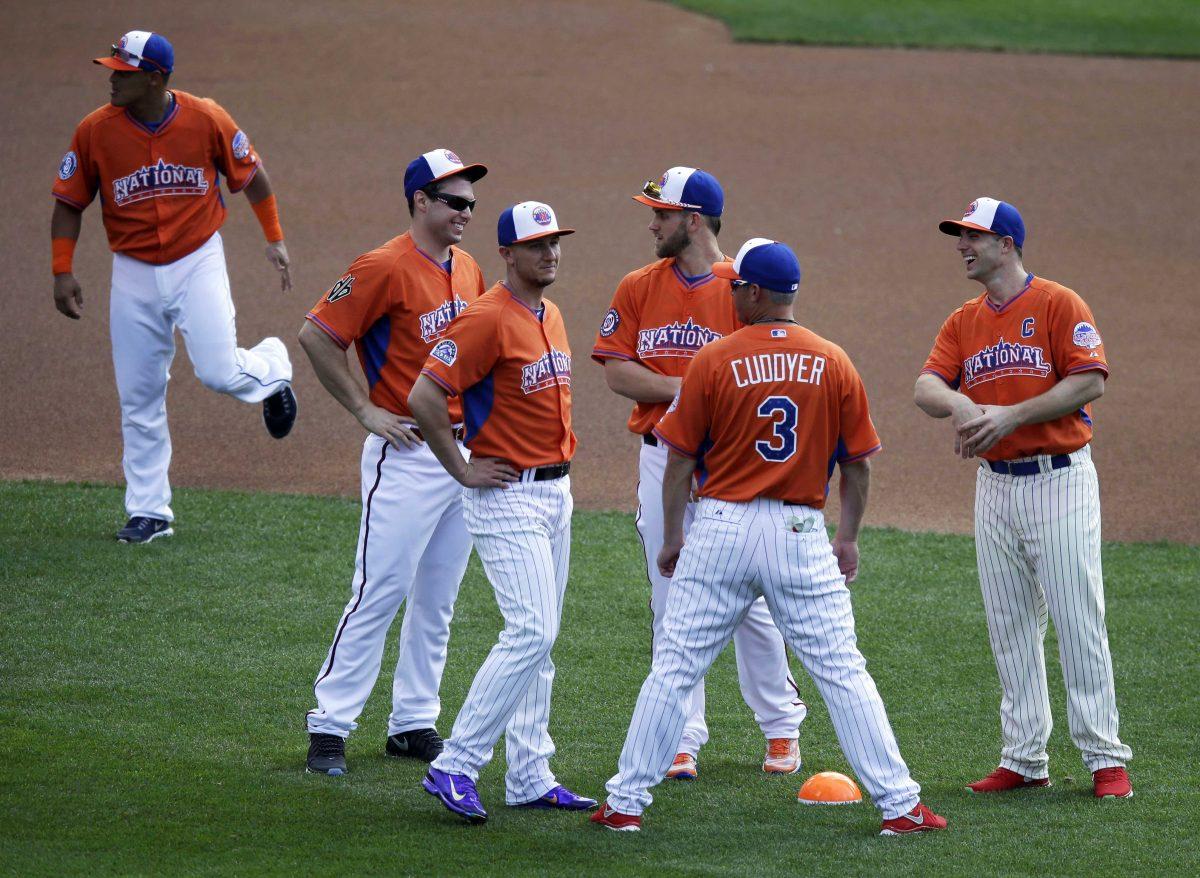Over the course of a season, baseball is a fairly predictable sport. Some players will be good, some will be bad and the umpires will generally make the right calls.
But when confined to one game, all that goes out the window.
Last season, Major League Baseball added a second wild card team in each league and created the wild card round, a one-game showdown to decide which wild card team goes to the actual playoffs.
In doing so, it opened the door for chaos and fluke performances to decide which teams reach the postseason.
Not only does a one-game playoff put too much emphasis on the randomness of the sport, but it also numbs much of the buildup to the postseason.
Since the first wild card was implemented in 1995, the team that won it was an average of two-and-a-half games better in the National League and almost five games better in the American League than the next closest team. In the 36 wild card races, only twice did the season end in a tie, necessitating one-game tiebreakers in 1998 and 1999.
The bizarre history of single-game tiebreakers had a new installment — the 2007 NL West tiebreaker between the San Diego Padres and Colorado Rockies.
Leading by two runs in the bottom of the 13th inning, the Padres called on Trevor Hoffman— one of the best closers ever — to finish the game. Naturally, he gave up three runs and lost the game.
Hoffman had only given up three or more runs once prior to that game during the 2007 season and only 31 times in 1,035 appearances during his entire career. He retired as the all-time leader in saves, but even the best are vulnerable to baseball’s randomness.
In this year’s NL wild card race, only three teams have had a realistic shot since the All-Star break, and they are in the same division. So under the new rules, they will all get into the playoffs.
If one of these teams was bound to spend the playoffs on the couch, the end of the season would be a week’s worth of pseudo-elimination games for all three teams, instead of some half-baked fight for positioning.
While being in a one-game playoff is a tough draw, at least those unfortunate teams can pray to the chaos gods for some help.
The inaugural wild card round in the NL featured the St. Louis Cardinals and the Atlanta Braves. In seasons prior, St. Louis would not have been able to sniff the playoffs since it finished six games behind Atlanta.
St. Louis took an early lead in Atlanta, as the Braves looked like they were throwing themselves a pity party. Atlanta came roaring back late and looked like it might soon take the lead when the chaos gods crashed the party.
A high pop-up into shallow left field dropped between St. Louis shortstop Peter Kozma and left fielder Matt Holliday, loading the bases with only one out in the bottom of the eighth and Atlanta down by three.
At least it would have if left field umpire Sam Holbrook had not called the play an infield fly, causing the batter to be called out. The next batter grounded out, and the Braves went on to lose the game.
Not only was the ball nowhere near the infield when it landed, Holbrook didn’t make the call until just before the hit dropped between Kozma and Holliday. Turner Field was soon covered in debris as angry fans hurled bottles from the stands in protest of the awful call that played a role in the Braves’ defeat.
The lesson to take away from that mess in Atlanta last year is simple: Baseball is not designed to revolve around winner-take-all game.
The best teams almost always separate themselves throughout the season, and the MLB’s attempt to create parity in the league simply devalues the regular season by allowing too many teams into the postseason.
Opinion: MLB wild card changes damaging
By Cole Travis
September 23, 2013
National League captain David Wright, right, speaks with teammates including Michael Cuddyer, second from right, and Bryce Harper, third from right, during batting practice for the MLB All-Star baseball game, on Monday, July 15, 2013, in New York. (AP Photo/Kathy Willens)



